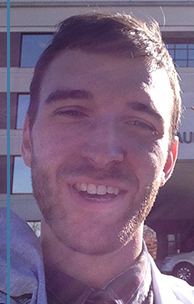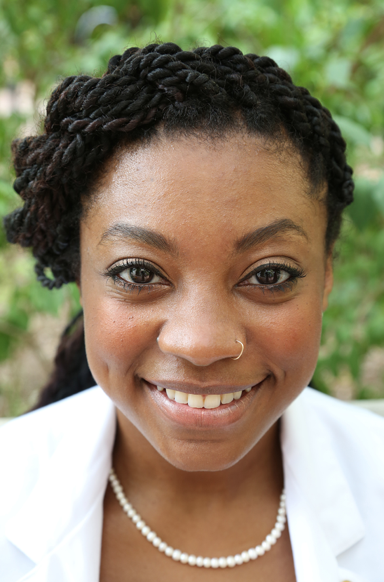Advice from Our Students
We asked some of our students what advice they would offer to their peers who were just entering the world of financial aid, loans, scholarships, and debt. Here’s what they had to say.
Cyndey Bullock
Fourth Year
The best advice I could give is probably something we’ve all heard before: “Make a budget.” I think it is important to be forward-thinking and create a budget to understand where your finances stand throughout the year. It’s okay for that budget to change as your circumstances change. The financial aid staff can help support you in sticking to your budget.
For me, as a non-traditional student, I knew coming into medical school that I had to be aware of my debt prior to med school and come up with a plan to be financially smart. So, I made a point to meet early with the financial aid office to make a plan. I think all students could benefit from meeting early with a financial aid officer and making your finances a priority from the start. This helps prevent surprises later.
It really comes down to five key things. Know your options. Know how much you owe. Know your financial aid officers. Don’t be afraid to ask questions. Apply for scholarships – they are out there and they can make a huge difference.
“I think all students could benefit from meeting early with a financial aid officer and making your finances a priority from the start. This helps prevent surprises later.”
 Charles Semelka
Charles Semelka
Fourth Year
Fourth Year
My best advice I can give is to do your best to understand your options, and keep track of how much you borrow and how much you spend. This is really important. Keep track of every cent you spend. You can’t improve your finances unless you know where your money is going. It is also helpful to make a budget for how you’re going to pay the money back, and stick to it.
The best advice I received when I was starting the financial aid process was to not borrow more than I need and to cut up my credit cards. Another helpful tip is to pay yourself first, meaning to put away a portion of every dollar you earn. It is critical to start saving early, and my advice is to make it a priority to put away a small amount each month into an account you will not use. Aim for $50. If you can’t do that, do $25 or even $10, but make it happen every month.
“Don’t spend beyond your means, and keep track of every cent you spend. You can’t improve your finances unless you know where your money is going.”
“Statistically, it takes doing something 21 times for it to become a habit, so start good financial habits like saving regularly and keeping track of what you spend: they will soon become habits.” – Maureen Rosen
